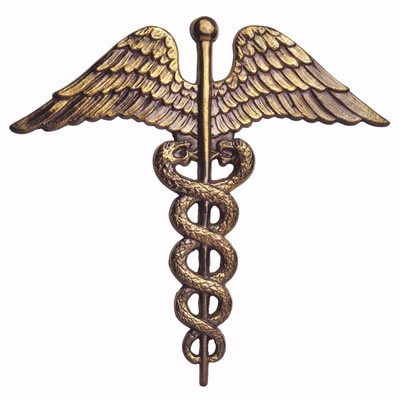|
Featured Product
Printed Obesity Algorithm Booklet Bundle of Five
$80 (You save $45!) Click here to order online.
|
|
Contact Us
| |
Bariatric Physicians
2821 S. Parker Road
Ste. 625
Aurora, CO 80014
303.770.2526 | asbp.org
Staff
Laurie Traetow, CAE
Executive Director
laurie@asbp.org
Beth Amelon
Sponsorships & Exhibits Coordinator
beth@asbp.org
Carly Crosby
Meeting Planner & Executive Coordinator
carly@asbp.org
Marcie Gonzales
Education Coordinator
marcie@asbp.org
|
|
|
|
Obesity Medicine e-Weekly
|
News: AMA Edition
 Vote for ASBP as your primary medical specialty society Vote for ASBP as your primary medical specialty society
Did you know ASBP has a voice in the American Medical Association (AMA) House of Delegates? This voice has been instrumental in both the AMA's 2013 declaration of obesity as a disease and the 2015 resolution to address the need for improved obesity education in medical schools. You can help us strengthen our voice by voting for ASBP as the medical specialty society that represents you. For every 1,000 votes we receive, we're allowed one additional delegate in the House of Delegates.

Featured member benefit: AMA representation
Currently, Dr. Ethan Lazarus serves as ASBP's AMA delegate, and Dr. Carolynn Francavilla serves as the alternate delegate. Drs. Lazarus and Francavilla were instrumental in the AMA's decisions regarding obesity in 2013 and 2015, but why else is it important for ASBP to be represented? ASBP is one of the few obesity-related organizations with a medical specialty society seat in the AMA House of Delegates, which means we can educate other AMA representatives about the importance of recognizing, preventing, and treating obesity in a clinical setting. We can also build partnerships with other organizations and gain support for our initiatives, which ultimately can influence AMA policy. Questions about this and other membership benefits? Email membership@asbp.org.

ASBP hosts first obesity caucus at AMA annual meeting
Last month, Drs. Lazarus and Francavilla attended the AMA Annual Meeting in Chicago, where they hosted the first-ever obesity caucus. Fifteen representatives from nine different organizations (including the AMA) gathered at the caucus to discuss collaborative initiatives to further improve treatment and prevention of obesity, reduce weight bias, improve obesity education, and help reverse the obesity pandemic. Dr. Lazarus also encouraged caucus attendees to support the Treat and Reduce Obesity Act of 2015, and in a letter to Sen. Thomas R. Carper earlier this month, the AMA officially expressed its support for the bill. A few reminders from ASBP... - Vote to approve the proposed name change from American Society of Bariatric Physicians to Obesity Medicine Association. Cast your vote by July 29.
- Nominate your fellow ASBP members for an award. Complete the award nomination form (one per nominee) and submit it to rachel@asbp.org by July 31.
- Vote for your 2015-2016 Board of Trustees. Cast your vote by Aug. 4.
Questions? Contact membership@asbp.org.
|
Foundation
 Late-breaking abstract submissions accepted until Aug. 21 Late-breaking abstract submissions accepted until Aug. 21
We extended our deadline and are now accepting late-breaking abstract submissions for one more month! This is your opportunity to present your research to the leading experts in the field of obesity medicine. The Obesity Treatment Foundation sponsors the poster session, which takes place on Thursday, Oct. 1, at Overcoming Obesity 2015. Submit your abstract online before Aug. 21 to be considered. (Late-breaking abstract presenters will not be listed in the onsite guide.)
 One month left to donate an item for the silent auction Support clinical obesity research by donating an item to the silent auction, to be held Saturday, Oct. 3, in conjunction with the Obesity Treatment Foundation cocktail party and fundraiser at Overcoming Obesity 2015. Simply complete your donation form and submit it to stacy@asbp.org by Aug. 21.
|
Resources
 The Obesity Treatment Foundation (OTF) helps keep you up to date on current obesity research! Each week, OTF publishes a brief overview of three recent studies so you can be in the know, even during your busiest days. Click the titles below to view the full articles, and please consider supporting OTF so we can continue to provide you with updates on the latest research. The Obesity Treatment Foundation (OTF) helps keep you up to date on current obesity research! Each week, OTF publishes a brief overview of three recent studies so you can be in the know, even during your busiest days. Click the titles below to view the full articles, and please consider supporting OTF so we can continue to provide you with updates on the latest research.
Lewisk, H. B., et al. Obesity, 2015.
Larger portion sizes are known to be associated with greater energy intake; however, there is little evidence about how portion sizes affect gut hormone secretion, subsequent energy intake, and appetite. A breakfast study was conducted whereby portion sizes were reduced by 20 percent and 40 percent from control; energy intake at subsequent meals, appetite hormones, and appetite were measured. The study found that intake at lunch and the whole day, except breakfast, did not differ between groups. Postprandial PYY, GLP-1, GIP, insulin, and fullness profiles were lower; hunger, desire to eat, and prospective food consumption were higher following 40 percent reduction compared to control. Appetite ratings profiles, but not hormone concentrations, were associated with subsequent energy intake. These findings suggest that small reductions in portion size at breakfast may be a useful strategy to constrain energy intake.
Keating, S. E., et al. J. Obesity, 2014.
High-intensity interval training (HIIT) is growing in popularity. HIIT has been shown to improve fitness, but the effects on body composition are not as well known. A study was conducted to assess the effect of HIIT versus continuous aerobic exercise training (CONT) or placebo (PLA) on body composition. Fitness and body composition (measured via dual-energy X-ray absorptiometry) were analyzed before and after 12 weeks of the intervention in 38 previously inactive adults who were overweight. The study found that fitness increased significantly in both CONT and HIIT. Percent trunk fat was reduced in CONT by 3.1 ± 1.6 percent and in PLA by 1.1 ± 0.4 percent, but not in HIIT (increase of 0.7 ± 1.0 percent). There was a reduction in android fat percentage in CONT (2.7 ± 1.3 percent) and PLA (1.4 ± 0.8 percent) but not HIIT (increase of 0.8 ± 0.7 percent). These results suggest that although HIIT is a time-effective way to improve fitness, it does not have the same effects on body fat as continuous exercise does.
Gut microbiota and metabolic disorders
Hur, K. Y., and Lee, M. S. Diabetes Metab J., 2015.
Gut microbiota is involved in the development of a number of diseases, including metabolic disorders, gastrointestinal diseases, and cancer. Recent studies suggest that an altered gut-microbial composition is associated with metabolic diseases, including obesity, diabetes, and non-alcoholic fatty liver disease. These studies suggest the gut microbiota should be considered as an important factor in modulating metabolism and metabolic disorders. This article discusses the mechanisms by which intestinal microbiota are associated with obesity and diabetes and how modulation of intestinal microbiota may be a novel therapeutic target for obesity and diabetes.
|
Education
-
Full Conference
30 CME | Sept. 30-Oct. 4 | RegisterIncludes both the Obesity Medicine Certification Review Course and the Fall Obesity Summit.
-
Obesity Medicine Certification Review Course13 CME | Sept. 30-Oct. 1 | RegisterThis course addresses the topics related to obesity medicine about which physicians may be tested on the American Board of Obesity Medicine (ABOM) certification exam.
- Research Basics Workshop
4.25 CME | Oct. 1 | Register
This is an interactive, half-day workshop to help clinicians learn the basics of conducting practice-based research and how to publish the results.
-
Fall Obesity Summit17 CME | Oct. 2-4 | RegisterThis summit addresses topics related to current and emerging scientific research, evidence-based treatment approaches, technologies, and clinical and practical methods used by clinicians in the field of obesity medicine.

Only three more Obesity Basic Medical Treatment courses this year
Refer a colleague to one of our last three Obesity Basic Medical Treatment courses of the year. The one-day Obesity Basic Medical Treatment introductory course teaches physicians and health care providers who are brand new to the field of obesity medicine about the basic approaches to obesity treatment. Do you know someone interested in getting involved in obesity medicine? Refer them to a course in their area!
|
|
|
|
|